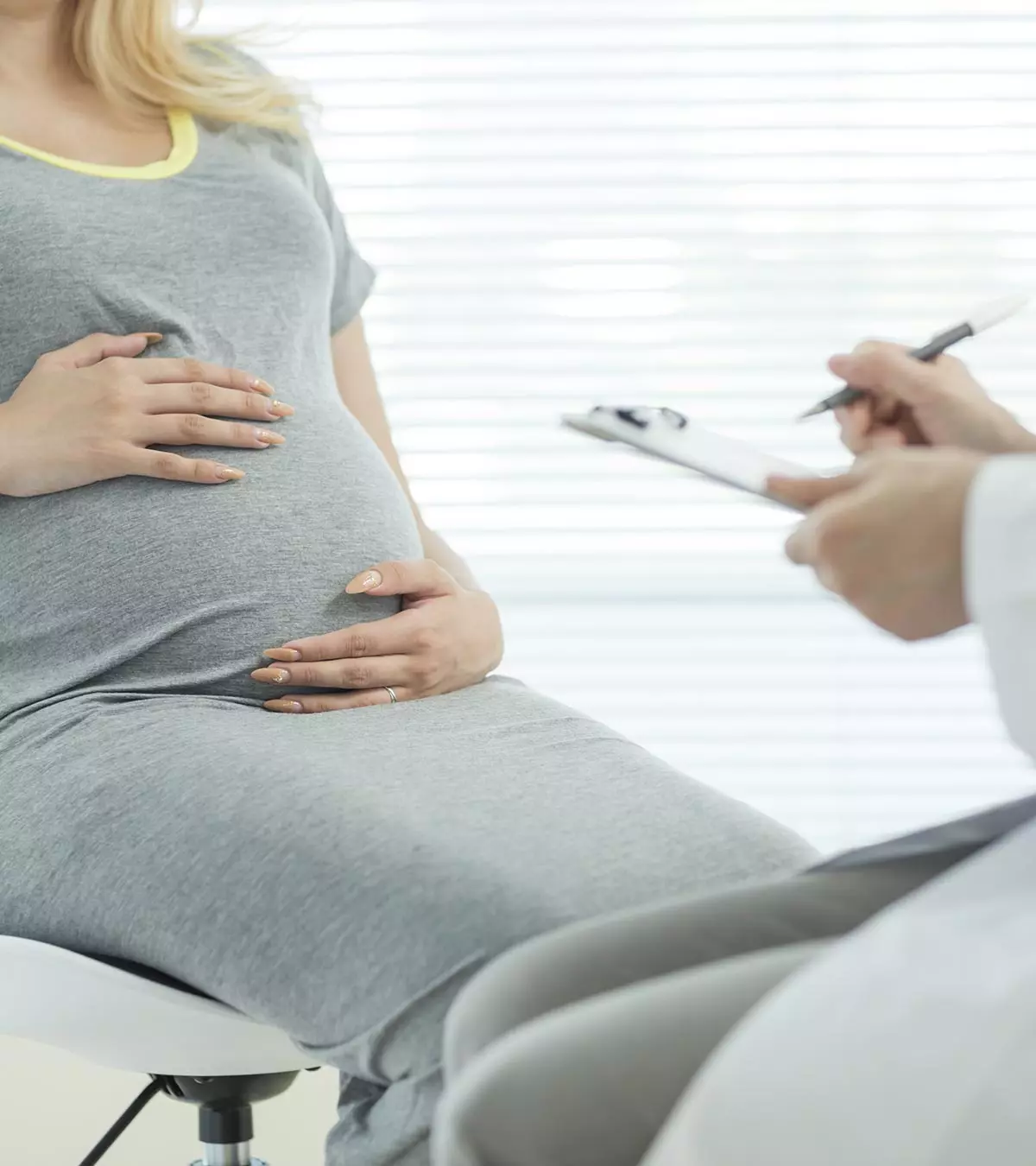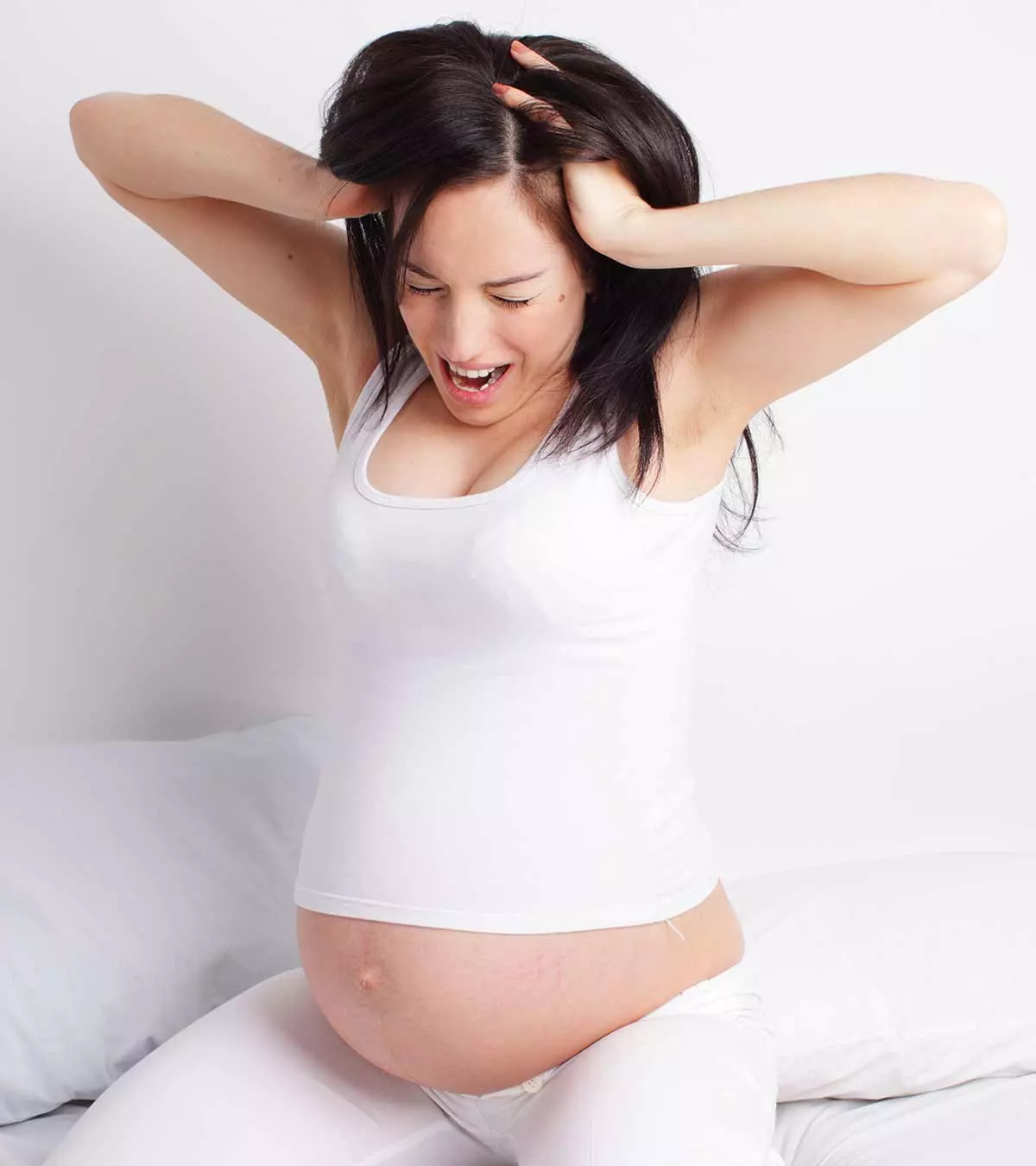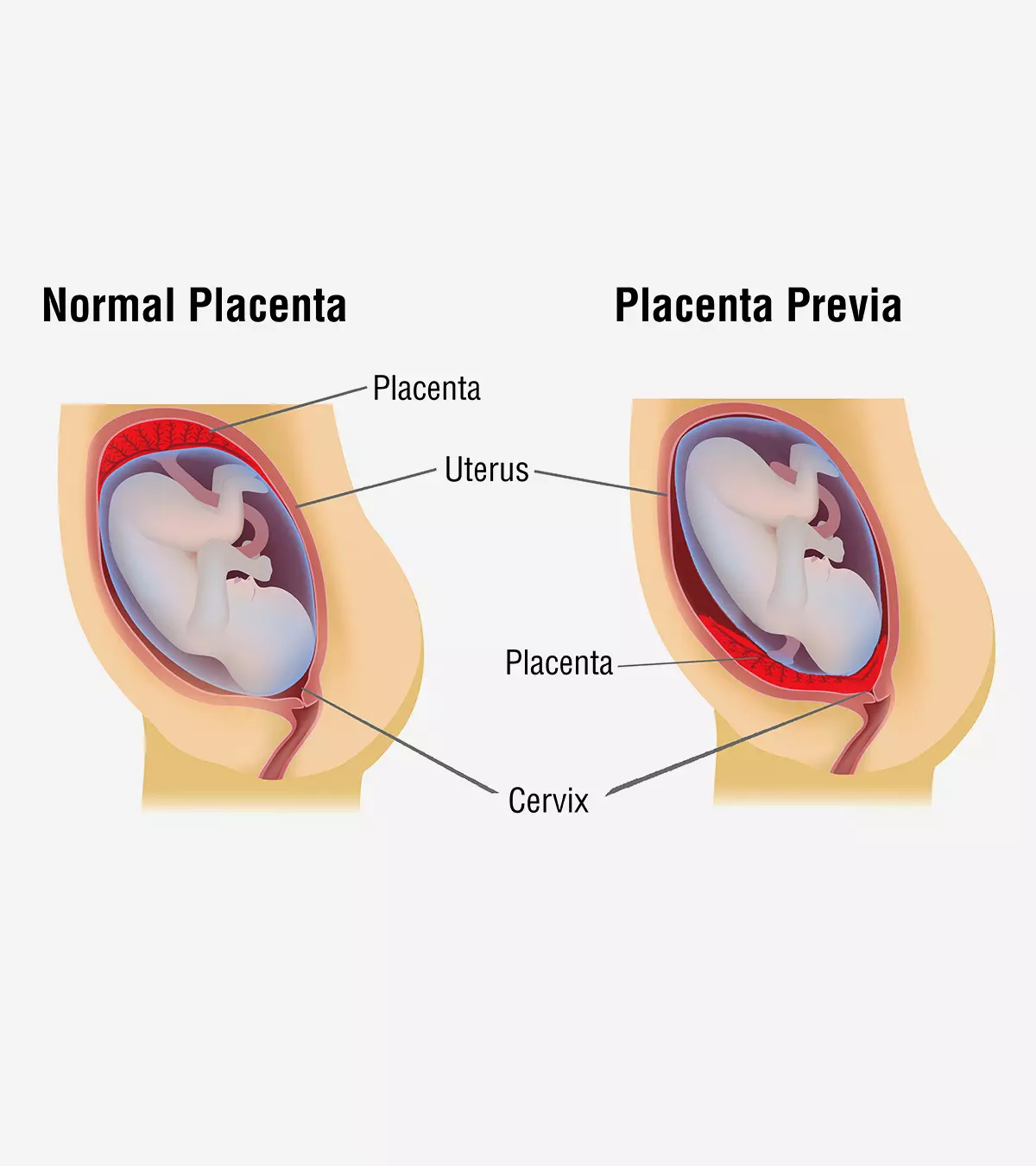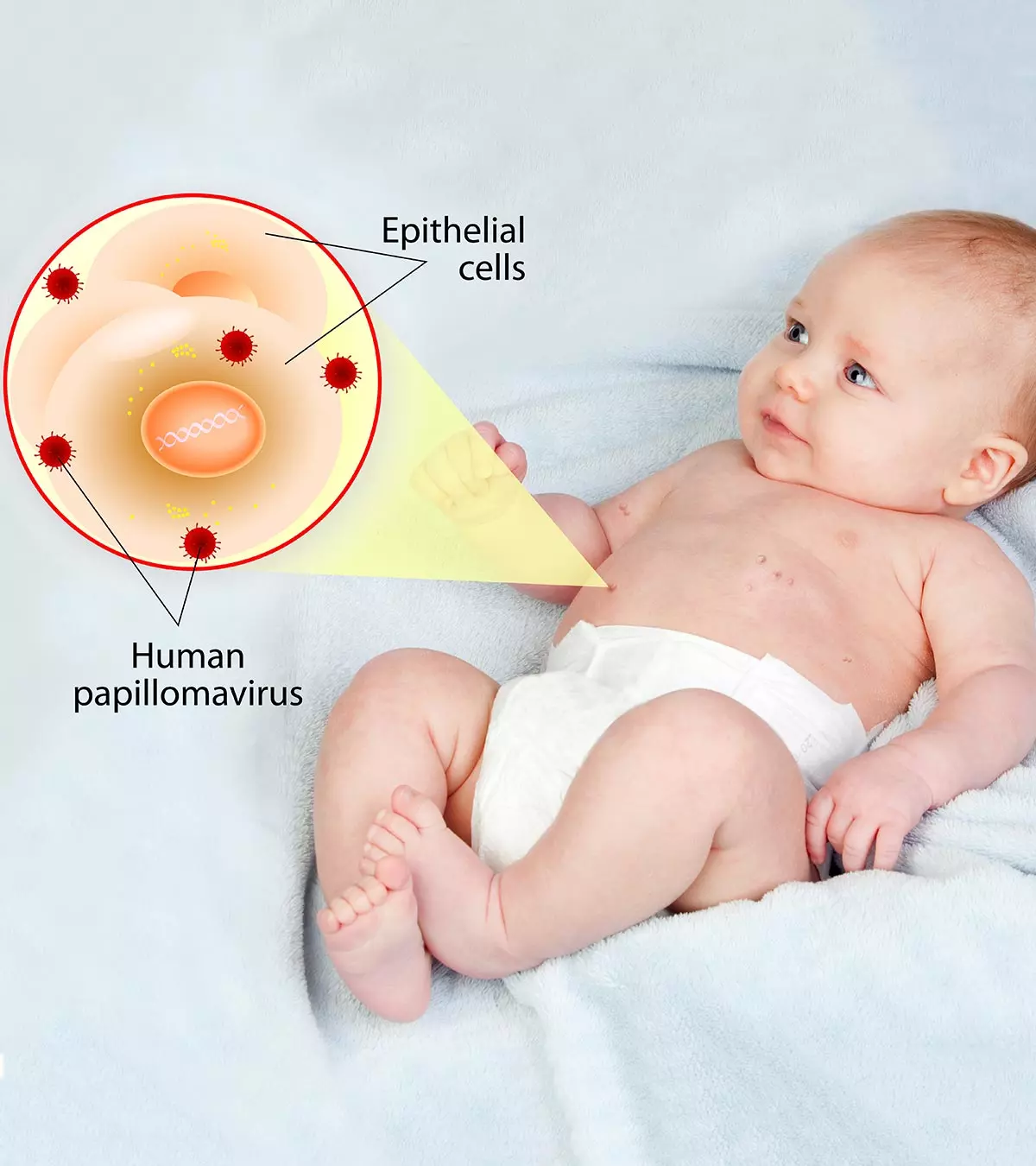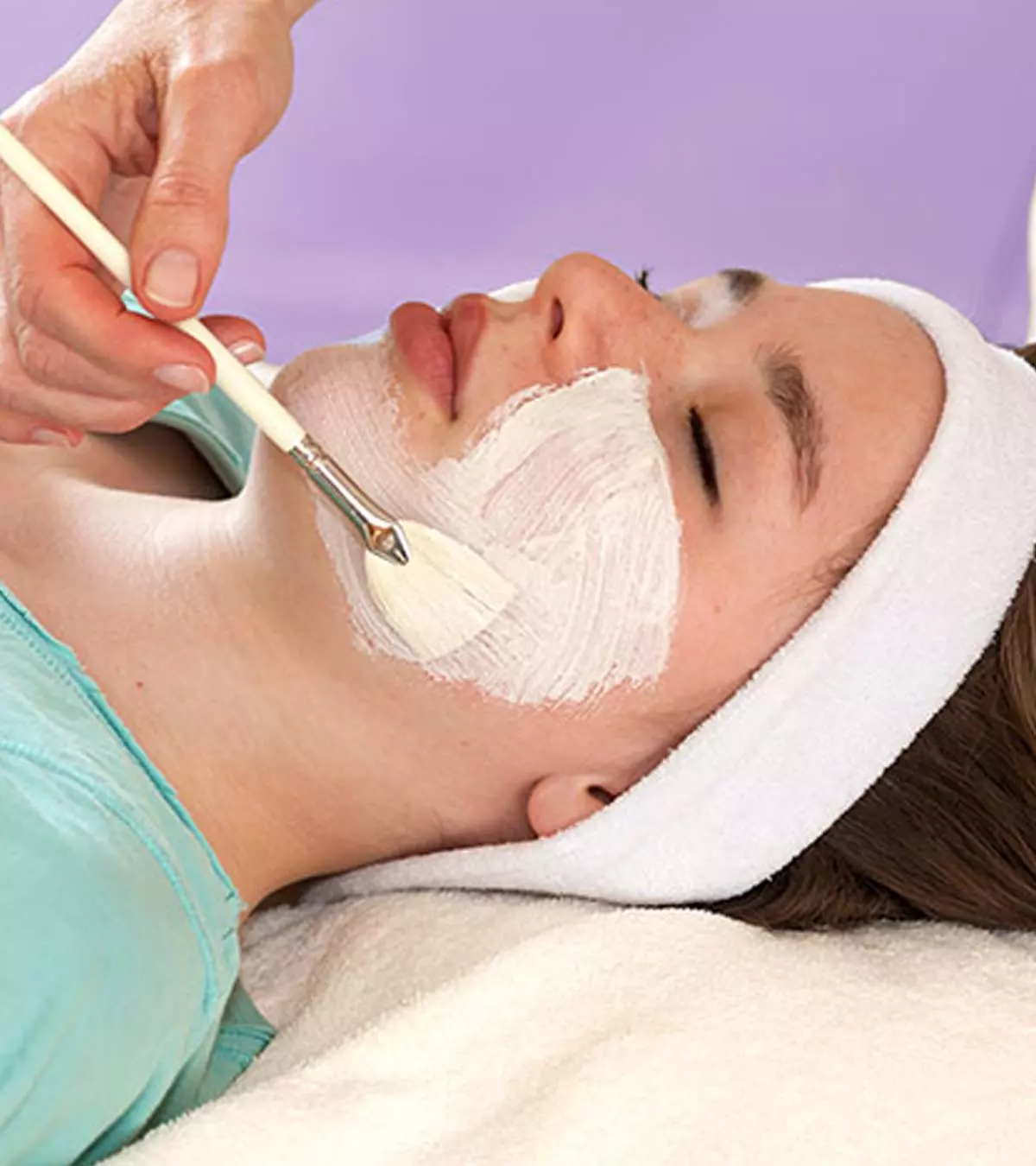
Image: ShutterStock
Like dermaplaning and chemical exfoliation, chemical peels are popular cosmetic treatments that help in skin rejuvenation.
However, the use of chemical peels during pregnancy may raise safety concerns. These may work effectively to reduce wrinkles, blemishesiNoticeable modifications in the skin’s appearance caused by scars, patches, or discolorations. , and sun damage, and so are quite popular nowadays. Also, they are used to remove precancerous cell growths (1). Some chemical peels are not suitable for pregnant women (2). Hence, you should consult a doctor before getting the procedure done because the chemicals used in the process may get into the mother’s bloodstream and affect the growth of the baby. Some side effects of chemical peels on a pregnant woman include pigmentation and scarring. If you want to know more in detail about these peels, keep reading our post to know why they are unsafe during pregnancy and their side effects.
Key Pointers
- Chemical peels can penetrate deep layers of the skin and enter the bloodstream, which may pose a risk to the fetus.
- Pigmentation can worsen during pregnancy with chemical peels.
- Miscarriage and viral outbreaks, such as herpes, have been associated with chemical peels.
- Alpha hydroxy acids (lactic, glycolic, and fruit acids) in light chemical peels are safe during pregnancy.
- Phenol and salicylic acid, deeper chemical peels, should be avoided by pregnant women.
Why Are Chemical Peels Unsafe During Pregnancy?
Apart from the fact that it can make you look like a million dollars, chemical peels can cause a number of unpleasant side effects. Some strong chemical peels can penetrate the deeper layers of the skin, enter your bloodstream and harm the baby in your womb too!
Here are some harmful effects of a chemical peel:
1. May worsen pigmentation

Image: Shutterstock
Experiencing skin pigmentation issues during pregnancy is common. Hormonal changes during pregnancy cause an increase in pigmentation (hyperpigmentation), leading to skin conditions like melasma. You can thank all those ramped up hormones for your skin issues. A chemical peel can make the condition worse and cause the pigments to become even darker.
2. Ineffective in many cases
One of the major reasons for staying away from chemical peels during pregnancy and lactation is that the peels just don’t work wonders on your skin thanks to all the hormones in your body! The peels may give temporary relief from problems such as pigmentation and acne during pregnancy. However, since these problems are a result of pregnancy hormones, they recur pretty quickly (3). That is some good money down the drain!
3. Can cause miscarriage
Some chemical peels can cause a miscarriage if the product passes through your bloodstream and is toxic for the fetus (4). Some others require general anesthesia, which is not always safe during pregnancy
 Did you know?
Did you know?4. May trigger herpes
Some women can also experience an outbreak of viral infections, like herpesiA viral infection that causes cold sores in or around the mouth or genital region. , after opting for a chemical peel
.
5. Other risks

Image: Shutterstock
Some other risks synonymous with the use of chemical peels include:
- Temporary redness of the skin.
- Scarring.
- In a rare case, it can adversely affect the heart, liver and kidney.
So, chemical peels look like a complete no-no for a pregnant woman! Don’t lose heart. Some chemical peels are safe for use during pregnancy!
Types Of Chemical Peels
Chemical peels come in a variety of forms. Some are strong and unsafe during pregnancy while you can give others a try.
1. Safe chemical peels during pregnancy
Light chemical peels are safe during pregnancy
. These include alpha hydroxy acids, like glycoliciA chemical widely used in skin-care products to help eliminate dead cells and excess oil from the skin. acid, lactic acid, and fruit acids. You can safely opt for these peels and give your skin a makeover. The acid in these peels stay active for no more than five minutes and does not cause any harm to you or your precious baby. You may also use trichloro acetic acid or TCA peel to remove genital wartsiSmall, skin-colored growths around the genital area caused by the Human Papilloma Virus (HPV). as they doesn’t penetrate the skin
 Quick fact
Quick fact2. Chemical peels to avoid during pregnancy
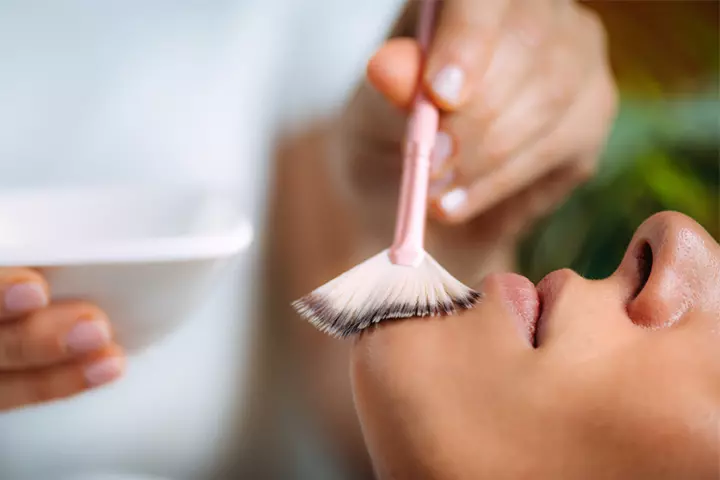
Image: Shutterstock
Most facials during pregnancy are safe, but deeper facial peels like phenol peels are strictly off-limits for pregnant women. You should also avoid peels that contain salicylic acid (2). Moreover, there is little research about using Jessner peels but as they contain salicylic acid, they should also be used carefully. These strong chemicals can permeate your skin and adversely affect your unborn baby. The procedure to apply these peels requires anesthesia and many months for recovery. If you need a deep peel, opt for the procedure only after your baby’s first birthday.
Frequently Asked Questions
1. How long does chemical peel stay in my system?
The duration of the chemical peel inside your system depends on the peel you have opted for. With superficial and medium peels, one may expect to heal within a few days to weeks (7). However, with deep peels, the body may take around a few weeks to months for recovery (8).
2. What skin treatments are safe during pregnancy?
As a general rule, it is best to postpone skin treatments that use chemicals until the end of pregnancy. However, there has been insufficient study data to prove the possible side effects of skin treatments such as Botox, fillers, laser treatment, and other cosmeceuticals during pregnancy. Specific procedures such as cryotherapy, electrocoagulation, and the mechanical removal of blackheads are considered safe during pregnancy. However, in the best interest of the mother and the baby, one must thoroughly consult an expert dermatologist before the treatment (9).
3. What precautions should pregnant women take if they decide to get a chemical peel?
Consult your obstetrician or dermatologist before making a decision. They can evaluate your situation, discuss potential risks, and provide personalized advice based on your health and skin condition. Avoid chemical peels and opt for pregnancy-safe alternative treatments unless the doctor deems a specific chemical peel safe.
4. What should I consider before getting a chemical peel while pregnant?
Before undergoing a chemical peel during pregnancy, it is vital to acknowledge the insufficient documented evidence concerning the safety and tolerance of cosmetic procedures while expecting. Although alpha-hydroxy acids are usually deemed safe, caution or complete avoidance is advised for salicylic acid and Trichloroacetic acid peels due to limited data and potential fetal risks (10).
Experts do not recommend chemical peel during pregnancy since it cannot improve pregnancy-related skin changes such as dark spots. If you plan to go for a chemical peel, do a patch test for skin sensitivity. Skin can be extra sensitive during pregnancy, and exposure to chemicals may worsen pigmentation. Chemical peels requiring general anesthesia are unsafe in pregnancy since anesthesia-related complications may arise after the procedure. Most pregnancy skin changes, such as dark lines and spots, go without interventions after childbirth. Chemical peels and other harsh cosmetic procedures should be postponed until the baby is born to protect skin health. If you wish to pamper yourself, you can look for packages that offer maternity beauty treatments that involve non-toxic skincare and relaxing therapies.
Infographic: Possible Adverse Effects Of Chemical Peels During Pregnancy
Chemical peeling is a well-known cosmetic procedure for improving the appearance of the skin by exfoliating the layers of dead skin cells. However, these treatments may not be safe for pregnant women due to the potential risk of harmful chemicals impacting the developing fetus. Here is an infographic detailing the possible side effects of using chemical peels during pregnancy. Illustration: Momjunction Design Team
Worried about what is a safe skincare routine for pregnancy? Watch this video to learn which ingredients and cosmetic procedures to avoid and which ones to try.
References
- Marta I. Rendon et al.; (2010); Evidence and Considerations in the Application of Chemical Peels in Skin Disorders and Aesthetic Resurfacing.
https://www.ncbi.nlm.nih.gov/pmc/articles/PMC2921757/ - A review of the safety of cosmetic procedures during pregnancy and lactation.
https://www.sciencedirect.com/science/article/pii/S2352647517300059 - Rashmi Sarkar et al.; (2012); Chemical Peels for Melasma in Dark-Skinned Patients.
https://www.ncbi.nlm.nih.gov/pmc/articles/PMC3560164/ - P G Duncan et al.; (1986); Fetal risk of anesthesia and surgery during pregnancy.
https://pubmed.ncbi.nlm.nih.gov/3717642/ - Pina Bozzo et al.; (2011); Safety of skin care products during pregnancy.
https://www.ncbi.nlm.nih.gov/pmc/articles/PMC3114665/ - Acne in pregnancy
https://dermnetnz.org/topics/acne-in-pregnancy - Chemical Peels.
https://www.nhs.uk/conditions/cosmetic-procedures/advice/ - A Practical Approach To Chemical Peels.
https://www.ncbi.nlm.nih.gov/pmc/articles/PMC6122508/ - Dermatologic Surgery and Cosmetic Procedures during Pregnancy – A Systematic Review.
http://www.surgicalcosmetic.org.br/details/54/en-US/dermatologic-surgery-and-cosmetic-procedures-during-pregnancy—a-systematic-review - Chemical peels in the treatment of acne: patient selection and perspectives
https://www.ncbi.nlm.nih.gov/pmc/articles/PMC6053170/
Community Experiences
Join the conversation and become a part of our nurturing community! Share your stories, experiences, and insights to connect with fellow parents.
Read full bio of Dr. Ben Abbes Taarji Hicham
Read full bio of Ria Saha
Read full bio of Swati Patwal
Read full bio of Dr. Joyani Das


















